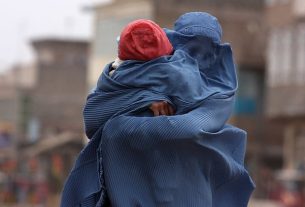(Bangkok) – A Thai civilian court’s conviction of two army instructors for the beating death of a conscript is the first successful prosecution under Thailand’s 2022 prevention of torture law, Human Rights Watch said today. The case highlights the need for the Thai government to punish military commanders’ use of torture and corporal punishment against soldiers under their command.
On May 27, 2025, the Criminal Court for Corruption and Misconduct Cases in Rayong province found two army instructors guilty in the death of Pvt. Worapratch Phadmasakul and sentenced them to 15 and 20 years in prison. Eleven senior conscripts face 10-year prison terms for assisting the crime. These are the first convictions under Thailand’s Prevention and Suppression of Torture and Enforced Disappearance Act, which took effect on February 22, 2023.
“The court conviction of army instructors for a conscript’s death is a major step in Thailand’s efforts to end torture and inhumane disciplinary measures against soldiers in barracks,” said Elaine Pearson, Asia director at Human Rights Watch. “Appropriate sentences will chip away at the Thai military’s entrenched impunity and show that commanders can be held accountable.”
Worapratch, 18, died after being severely beaten during disciplinary punishment on August 2, 2024 at the 3rd Infantry Battalion, 21st Infantry Regiment in Chonburi province near Bangkok. Medical reports showed he suffered brain swelling, broken ribs, a punctured lung, fractured collarbone, and spinal injuries.
Worapratch’s family said in a media interview that they planned to appeal the verdict, believing the instructors should receive a harsher sentence, up to life in prison. They also said that military superiors overseeing the instructors should be prosecuted for failing to take necessary measures to prevent the brutal beating of their son. The family plans to file a civil lawsuit against the army to seek compensation for damages.
The armed forces induct about 50,000 personnel – voluntary recruits and by conscription – across Thailand each year. Abuse of conscripts in barracks remains pervasive, despite the Thai military’s repeated statements that corporal punishment is strictly forbidden.
The Thai government and armed forces have long shown an inability to end abuses against conscripts. In addition, Thai military officials implicated in serious abuses have at times brought criminal defamation or cybercrime lawsuits against their accusers in retaliation.
In November 2024, the United Nations Committee against Torture, which monitors state compliance with the Convention Against Torture, expressed concern over torture and ill-treatment, in some cases resulting in death, of conscripts in Thailand. Worapratch’s case is one of the 21 deaths of conscripts reported between 2009 and 2024. Three of these cases, including Worapratch’s, occurred after the Prevention and Suppression of Torture and Enforced Disappearance Act took effect.
The prevention of torture law carries penalties of up to life in prison, and creates a new path to prosecute military personnel by giving jurisdiction to the civilian Criminal Court for Corruption and Misconduct Cases.
A superior officer who knows that a person under their command is about to or has committed an offense, but fails to take necessary or reasonable measures within their power to prevent the crime or investigate and prosecute those responsible, is liable for half of the penalty for the offense.
Thai authorities should carry out effective investigations of all deaths of conscripts and prosecute those responsible under the prevention of torture law and in accordance with Thailand’s obligations under the Convention Against Torture, which Thailand ratified in 2007, Human Rights Watch said.
“Thailand needs to take swift action to show that there is no place in its armed forces for those who believe they have unchecked powers to abuse conscripts or anyone else,” Pearson said. “The government and military commanders should act to ensure that Private Worapatch’s death will be the last case of barrack brutality in Thailand.”


